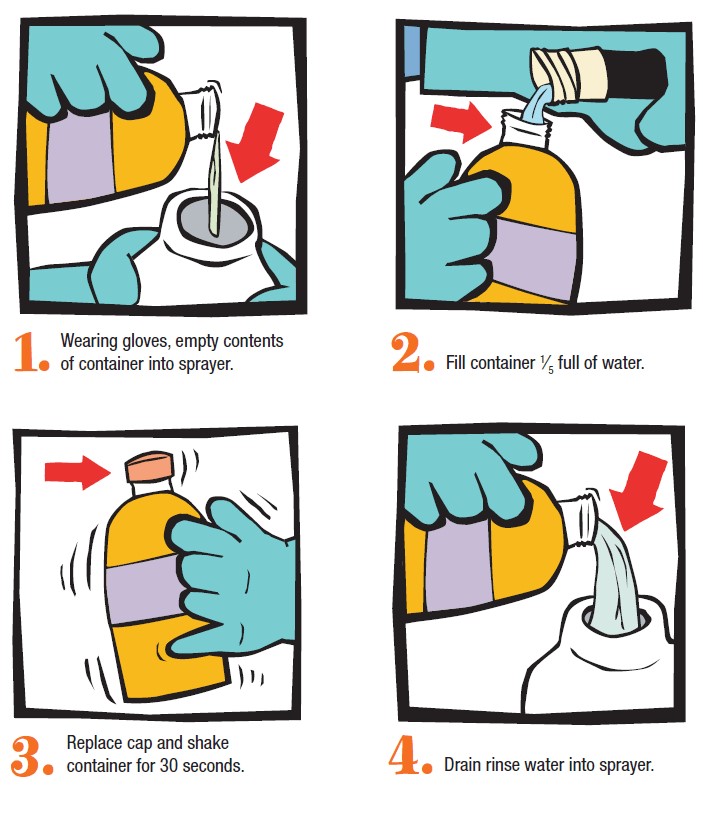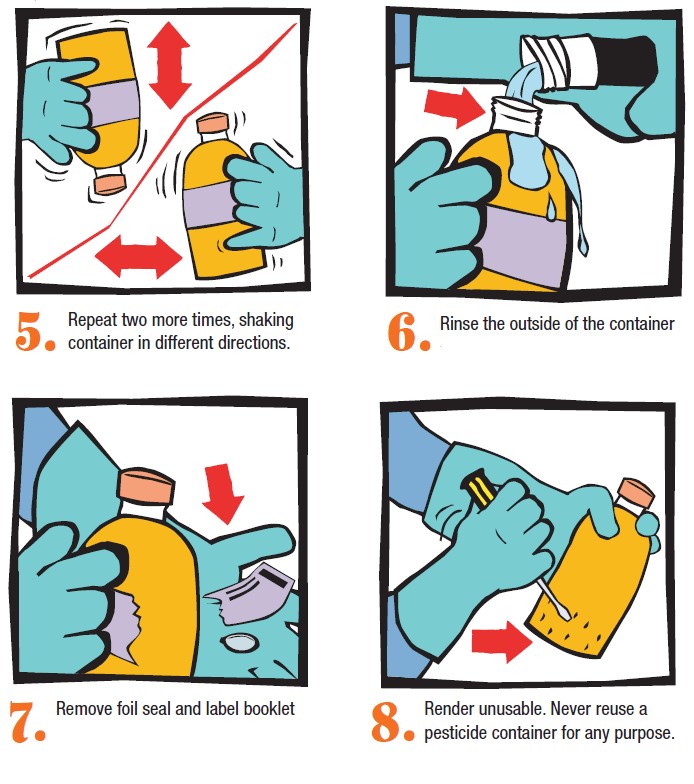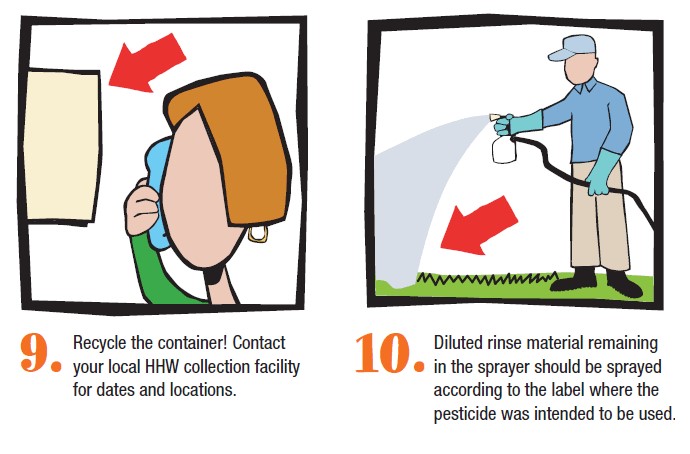Detailed Instructions for Disposing of Empty Pesticide Containers
Make sure to properly dispose of empty pesticide containers
- Use all the product in the container according to the instructions.
- Triple-rinse the container and use the solution like the full-strength pesticide.
- Punch multiple holes in the empty container so it won’t be used again.
- Recycle the container. Contact your local Household Hazardous Waste (HHW) collection facility for dates and locations.



Infographic provided courtesy of Penn State Extension Pesticide Education Program .
- Wearing gloves, empty contents of container into sprayer.
- Fill container 1/5 full of water.
- Replace cap and shake container for 30 seconds.
- Drain rinse water into sprayer.
- Repeat two more times, shaking container in different directions.
- Rinse the outside of the container.
- Remove foil seal and label booklet.
- Render the container unusable. Never reuse a pesticide container for any purpose.
- Recycle the container. Contact your local HHW collection facility for dates and locations.
- Diluted rinse material remaining in the sprayer should be sprayed according to the label where the pesticide was intended to be used.
Find a Hazardous Waste Facility
Hazardous Waste Disposal in Oregon, USA: Household Hazardous Waste Collection Services by County in Oregon
For the Portland metro region in Oregon, contact Metro’s Recycling Information. Call 503-234-3000, email or visit Metro’s website
Contact your local household hazardous waste location. Call 1-800-CLEANUP (1-800-253-2687) to find out where to dispose of pesticides. Or talk to your state's environmental agency to learn about pesticide disposal requirements for your area.
FOR QUESTIONS ABOUT PESTICIDES
The National Pesticide Information Center (NPIC) can answer questions about pest control chemicals.
1-800-858-7378 or npic@ace.orst.edu
Content provided by Weston Miller and Kaci Buhl.
Peer reviewed by OSU Department of Horticulture.
Pesticide disposal reference
Disposal of Pesticides
National Pesticide Information Center

